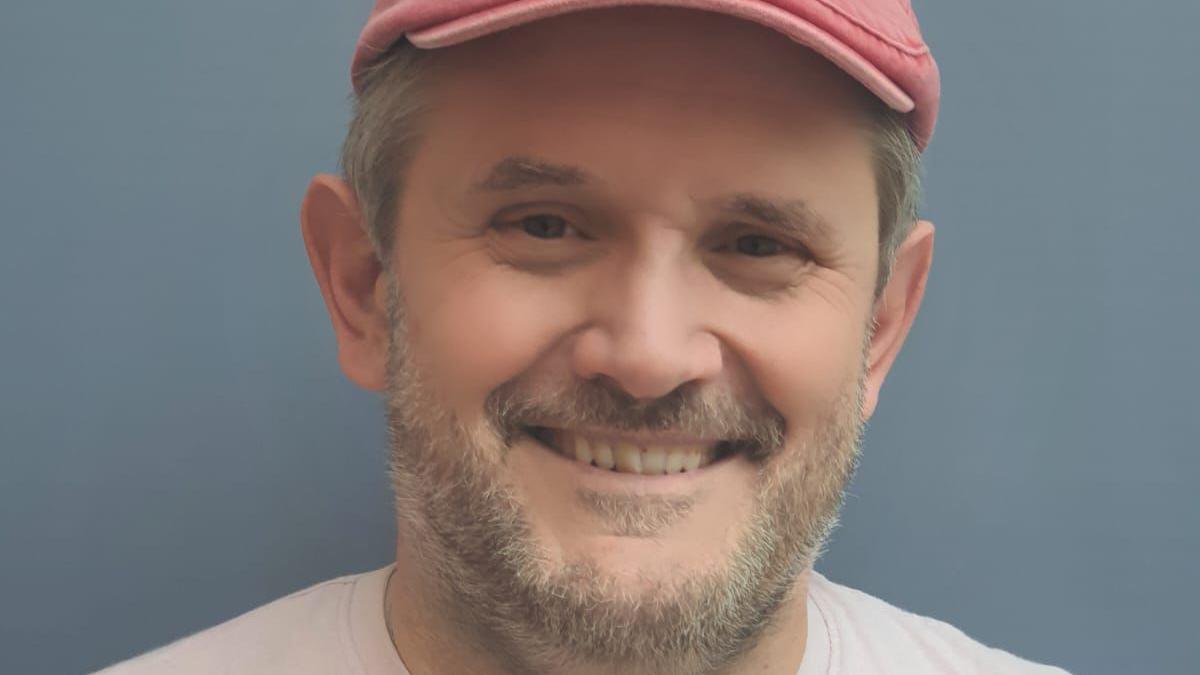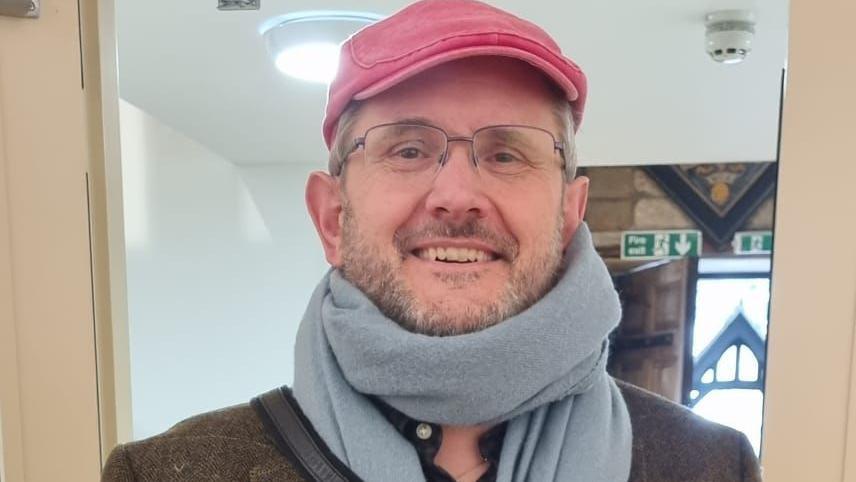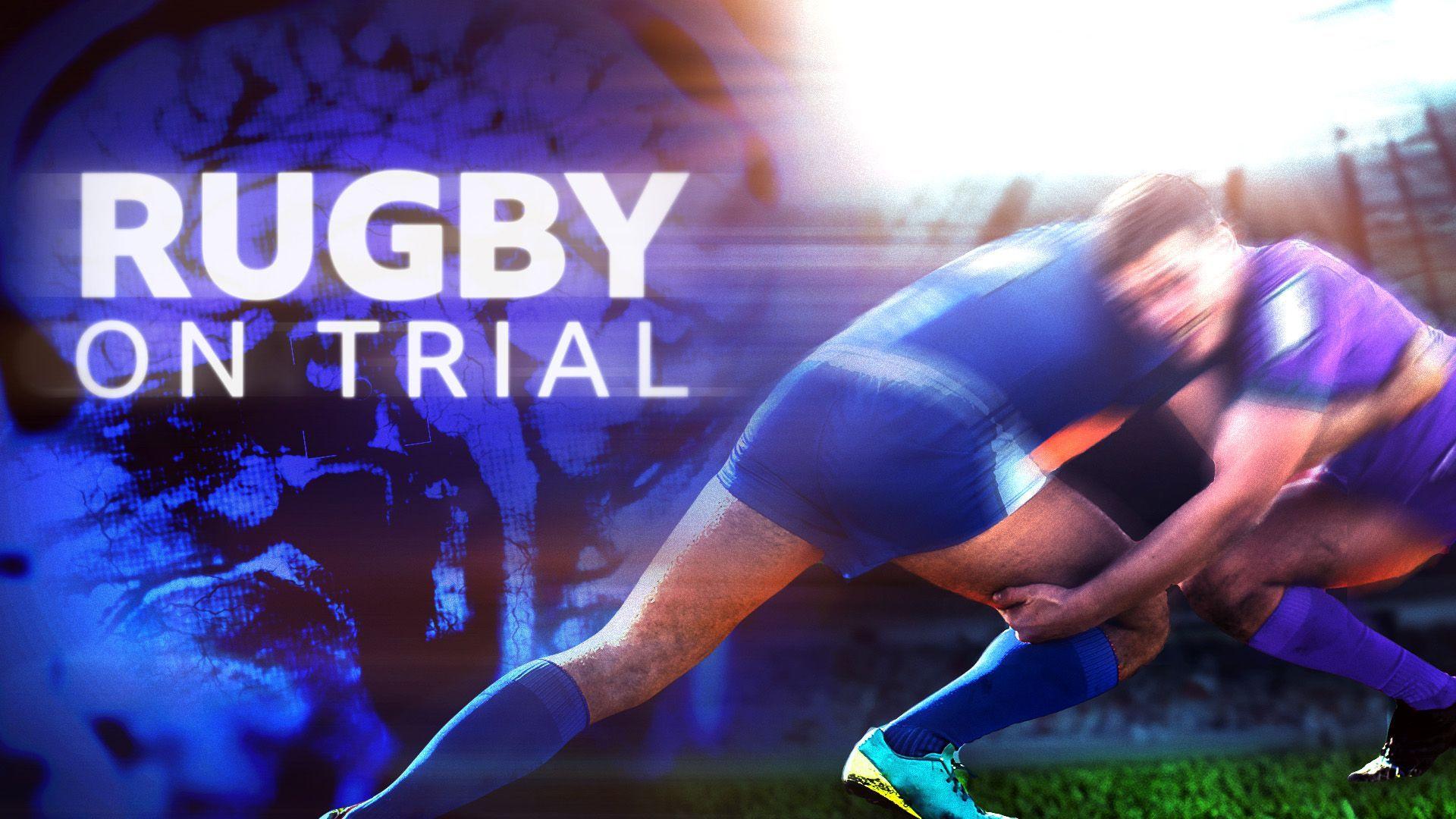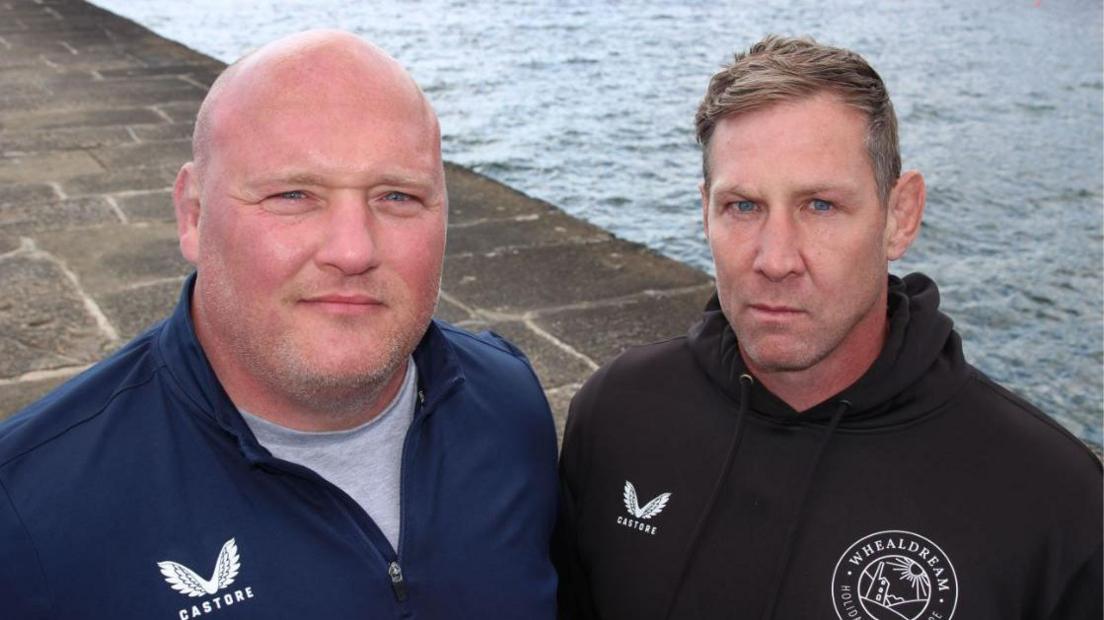Former player believes rugby caused his dementia

James Batterham is one of hundreds of rugby players suing three of the sport's governing bodies over neurological injuries
- Published
Hundreds of former rugby players are taking legal action against the sport's governing bodies over head injuries which have left them suffering from long-term brain conditions.
James Batterham, from Derby, is among them and is sharing his story.
The day was a Wednesday in 1984, Margaret Thatcher was in power, and James Batterham knew that, and what his own name was.
But he didn’t know where he was or what he was doing there.
The schoolboy had taken a knee to his head in a crunching tackle during a game of rugby and knocked out cold.
After James came to, the referee asked him a series of questions to check he was fit to continue.
He doesn’t remember being asked, but he managed to answer all of them correctly and was allowed to play on, before he really knew what had happened at all.
“People watching said afterwards they knew something was wrong,” he said.
“I had a bit of a reputation as a demon tackler with my school team, so when the opposite side gave the ball to the biggest gorilla in their pack, my team would stand aside and I would just launch myself and take them out at the legs, put an end to the move.
“I have no recollection of the incident. I came to gradually running around the pitch, going down for scrums.”
'Bruises all over'
Loose head prop James, 55, is one of hundreds of players taking part in a group litigation against World Rugby, the Rugby Football Union and the Welsh Rugby Union.
Players allege they weren’t sufficiently protected from repeated head impacts and concussions, leaving them suffering from long-term brain diseases such as early onset dementia, motor neurone disease and Parkinson’s.
The rugby authorities are contesting their claims and say welfare has always been their number one priority, using the best available science and technology.
As a child, James, from Derby, relished physical competition - he was always wrestling his younger brother whether he wanted to or not, which blossomed into a love of playing rugby as a front row forward.
He began with mini rugby from the age of eight and went on to interschool competition in Somerset, where he gathered a reputation as a fearsome tackler.
James said: “As a young bloke, you think you’re indestructible and you relish the physicality of it. You’re game on and you give it your all.
“I’d get back to the changing room with bruises all over and no idea how I got them. They were like battle scars.”

James Batterham gained a reputation as a "fearsome" tackler
James went on to compete at a high level after his success on the pitch at school, first with Cambridge University and then spells at Brentwood and Ongar RFCs in Essex in his 20s - playing more than 300 games in total.
But he said he moved from the front row to the backs in his later years to limit the battering his head was taking.
After leaving rugby, neck injuries prevented James from running and he had to take up swimming instead.
But he started to struggle with symptoms that would later be diagnosed as persistent post-concussion syndrome and early onset dementia.

Listen
BBC Sounds: James Batterham speaks to BBC Radio Derby's Andy Twigge

James then lost his job as a computer programmer, his home and his marriage and he became suicidal.
He said: “I think I was always aware something was wrong, I was having to work harder to achieve the same level and it was like driving a car with the handbrake on.
“I used to joke 'I can’t think straight. I’ve had too many bangs to the head', long before I knew there was a real condition.
“I would go through life like a rugby prop forward, head down and charge, to hell with the consequences, and that doesn’t make for good decision making.”
He was admitted to a mental health facility in Derby and has since rediscovered his faith and worked to rebuild his life - albeit with a lower life expectancy due to his brain injuries.
After a spur of the moment decision to contact his former school in Monkton Combe, Somerset, to talk to pupils, he now plans to visit schools, colleges and universities across the country to spread awareness of the risks associated with contact sports.
He said: “I want to stress I’m a huge fan of rugby, I still watch it, I love the game.
"It breaks my heart that this is the reality of what can happen when you’ve played the game.”
There are currently more than 500 former players across the two codes of the game who have stories similar to James and are involved in legal action against the rugby authorities.
Their fight is the subject of a new BBC documentary, Rugby on Trial.

A new BBC documentary Rugby on Trial explores the legal action being taken by hundreds of rugby players
In a statement, World Rugby and the Welsh Rugby Union said: “Whilst the ongoing legal action prevents us from reaching out to the players involved in this programme, we want them to know we care, we listen and they remain valued members of the rugby family.
“World Rugby never stands still when it comes to player welfare at all levels of the game, and we are constantly innovating and evolving to make rugby safer and more enjoyable to play.
“The concussion protocols in place today are informed by the latest science and world leading, independent, expert opinion.
“The decision of the players’ legal team to conduct their arguments through the media rather than using due process has been subject to criticism by the courts.
“World Rugby will defend ourselves fully in the proper manner via the court process. Four years since this legal action was launched, we urge the claimants’ lawyers to begin acting in the best interest of the players, and provide us with full details of their claim as soon as possible.”
An RFU spokesperson said: “The RFU’s paramount concern is and always has been the health and well-being of players at all levels of the game. Rugby is a leading sport when it comes to investment in and commitment to injury and concussion surveillance, prevention and management.
“The RFU entirely rejects the totally misplaced and unfounded allegations made in the BBC programme.
"Rugby will continue to advance a range of data informed player welfare initiatives such as lowering the tackle height in the community game, implementing smart mouth guard technology to measure all head impacts in the elite game, running injury surveillance programmes at all levels of the game in addition to an independent specialist brain health clinic for retired professional players.”
The Rugby on Trial documentary is available now on BBC iPlayer.
Details of organisations offering support with bereavement or feelings of despair are available at bbc.co.uk/actionline
Follow BBC Derby on Facebook, external, on X, external, or on Instagram, external. Send your story ideas to eastmidsnews@bbc.co.uk, external or via WhatsApp, external on 0808 100 2210.
Related topics
Rugby on Trial
- Published2 September 2024
